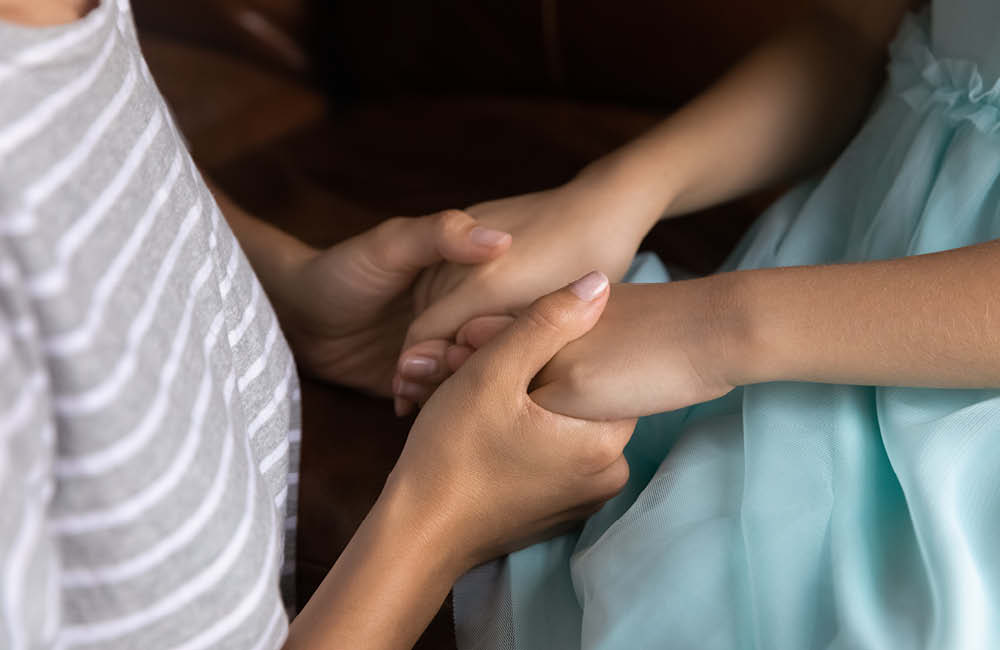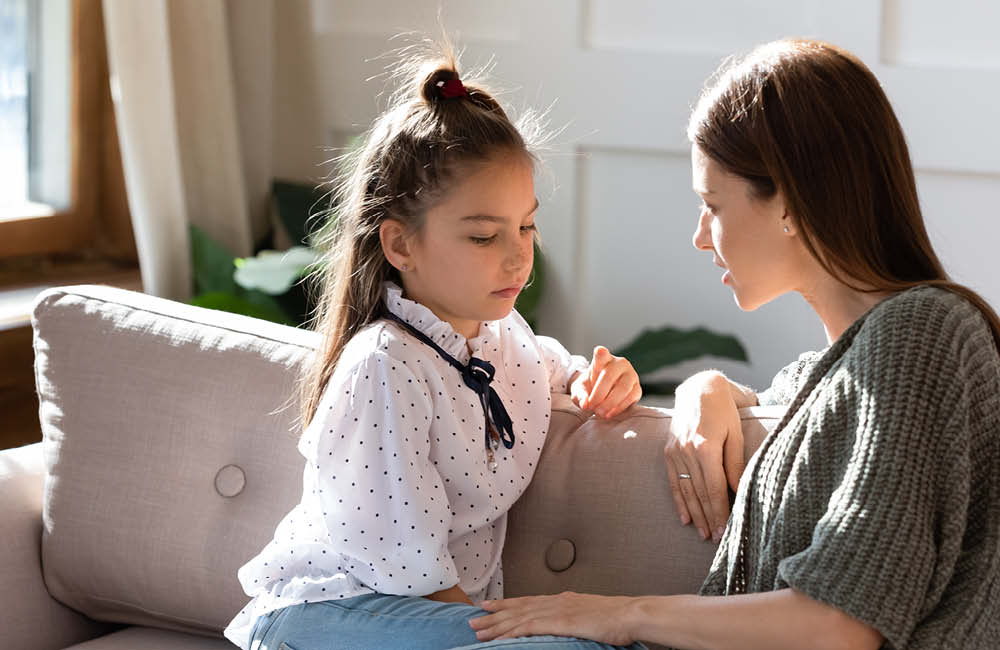Alfred Adler, the Austrian psychotherapist, had shared these powerful words; “Empathy is seeing with the eyes of another, listening with the ears of another and feeling with the heart of another.”
We've most probably heard or read a lot about empathy, and how important it is to shape our thoughts. Ever since we're young, we're taught to show empathy and kindness to those around us. Like most habits, these practices are best when started young. And your girl child needs to practice empathy.

Now, let us first understand the meaning of empathy. According to Ms Mehezabin Dordi, clinical psychologist, rehabilitation, and sports medicine department, Sir HN Reliance Foundation Hospital, Mumbai "Empathy is the ability to emotionally understand what other people are going through, to see things through their eyes, and to put yourself in their shoes. Essentially, it is placing yourself in the shoes of another person and experiencing what they are experiencing."
Those who feel empathy deeply are known as empaths. Ms Dordi further explains, "An empath is a person who is acutely aware of and sensitive to the feelings and emotions of others. Their ability to discern what others are feeling extends beyond empathy to taking on those feelings; they are able to feel what another person is feeling on a deep emotional level. They are able to sense the emotions of individuals around them, allowing them to better support and care for those who are most important to them."

Why It's Important To Start Early
Majority of our habits in adulthood stem from our childhood. A lifelong routine is what we tend to follow. In the same way, the behaviours and emotions that we are exposed to in our childhood go on to shape our perspective of the world.
Ms Dordi emphasises the need to imbibe empathy in children from a young age. "Young children are inherently egocentric throughout their early years of life, and they are prone to thinking just about themselves and their immediate needs. They aren't ready to think about other people's needs and feelings yet. However, establishing empathy is a critical developmental step for young children, one that can benefit them not only in infancy but long into adulthood," she expounds.
She further explains that understanding what others are feeling, how their actions affect others, and why someone might be experiencing feelings at a given time is a vital life skill for a girl child to have. It is advantageous to assist young children in developing a strong sense of empathy because:
• It aids them in developing a sense of security and stronger relationships with other children and educators
• It aids them in learning
• It encourages tolerance and acceptance of others
• It promotes good mental health
• It promotes social harmony and can reduce the likelihood of bullying; it encourages tolerance and acceptance of others
• It promotes good mental health
• It promotes social harmony and can reduce the likelihood of bullying.

Strategies
Ms Dordi lists out some strategies to get your girl child started on practising empathy. They are:
1. Challenges: Take on tough activities along with your child that force you to step outside of your comfort zone. Learn a new skill, such as a musical instrument, a hobby, or a foreign language, for example. Create a new professional skill set. You will be humbled if you do things like this because humility is a fundamental enabler of empathy.
2. Ditch The Comfort Zone: You can do this by travelling to different places and cultures. It improves your understanding of people. And as you get your child habituated to such travels and expeditions, they’ll be more open to understanding the different perspectives, and respect the other.
3. Feedback: Request feedback on your relationship skills (for example, listening) from family, friends, and co-workers, and then check in with them regularly to see how you're doing. This sets an example for your girl child that they need to keep the other person in mind before reacting or indulging in actions that might be hurtful.
4. Evaluate And Educate: Examine works that deal with personal connections and emotions. Empathy has been demonstrated to improve as a result of this. A lot of reading and gaining an understanding of others’ lives can be a good place to start.
5. Walking In Their Shoes: Talk to people around to gauge how they lead their lives—about their worries and concerns, as well as how they interpreted situations you both would have faced together. Again, this helps your child in understanding perspectives.
6. Curiosity: What can you learn from the people in your life? Curious people ask a lot of questions, which helps them understand the people around them better.
Also Read: Is Your Child Becoming A Bully? Here's What You Can Do About It
Also Read: Valuable Life Lessons Your Pet Can Teach Your Child